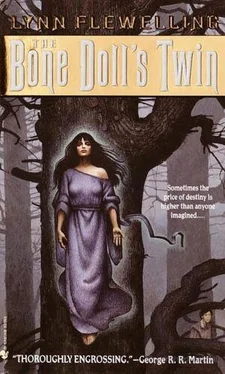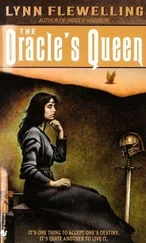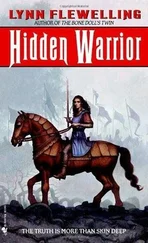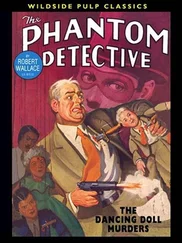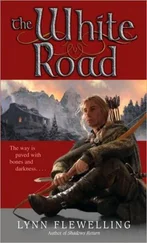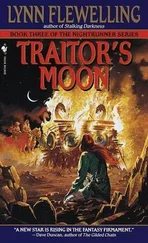“I’ve no doubt of that. Mistress Iya wouldn’t have chosen you otherwise.”
Cook brought them some broth and stale bread. Ki sat down on a bench and watched Tharin work with his awl and waxed thread. Tharin had a nobleman’s fine hands, but the skill of a craftsman in them.
“Will the duke be coming here soon?”
“That’s hard to say. The king keeps him busy in the city these days.” He made short work of the buckle and laid his tools aside.
Ki dipped his bread in the broth and took a bite. “How come you’re not with him?”
Tharin raised an eyebrow at him, but looked more amused than annoyed. “Duke Rhius has entrusted me with Tobin’s training at arms. Until we go off to fight again, I’m honored to serve him here. From what I saw last night, you’re going to be quite a help to me. Tobin needs someone matched to him for practice.” He reached for his own cup and took a sip. “That was a fine thing you did last night.”
“What did I do?” asked Ki.
“You stepped in to protect Tobin when the demon was racketing about in the hall.” Tharin said, as nonchalantly as if they were discussing the weather or crops. “I don’t believe you even thought about it. You just did it, even though you’d scarcely met him. I’ve seen a lot of squires—I was with Rhius in the Royal Companions in our youth—and I can tell you there aren’t many, even the best, who’d have thought to do that under such conditions. Well done, Ki.”
Tharin set his cup aside and ruffled Ki’s hair. “Tobin and I will take you up the road later and show you some good hunting. I’ve got a craving for Cook’s good grouse pie.”
Struck speechless by this unexpected praise, Ki could only nod as the man went outside again. As Tharin had said, he’d acted without thinking and so had thought nothing of it. His own father seldom took note when Ki tried to do well, only when he’d failed.
He sat for a moment, then tossed the rest of his bread into the fire with a prayer to Sakor to always be worthy of this man’s regard.
By the time Arkoniel came back to the barracks yard, Iya had reached an uneasy decision.
“Are you ready to go?” he asked.
“Yes, but there’s one last thing we must speak of before I leave.”
Rising, she took his arm and led him inside. “We’re likely to be separated for some time, you know.” Reaching behind the narrow pallet she’d used, she pulled out the leather bag and placed it in his arms. “I think it’s time I passed this on to you.”
Arkoniel stared at her in alarm. “This is passed on when the old Guardian dies!”
“Don’t go scattering my ashes just yet!” She did her best to sound annoyed. “I’ve been thinking about what you said before. The Harriers will be more vigilant in Ero, and perhaps more likely than most to notice something like this. It’s safer here with you for the time being.” When he remained dubious she gripped his arm firmly. “Listen to me, Arkoniel. You know what happened to Agazhar. What do you suppose I’ve been doing all these years but training you for this? You’re as much the Guardian now as I am. You know all the spells to hide and mask it. You know the history, what little there is left. There’s nothing left to teach you. Say you’ll do this for me. I’m ready to be free of it. I must concentrate on Tobin now.”
Arkoniel clasped the bag in both hands. “Of course I will. You know that. But—You are coming back, aren’t you?”
Iya sighed, determined not to make the same mistake with him she had with Tobin just now. “I certainly plan to, my dear, but these are dangerous times. If one of us falls, the other must be ready to carry on with the task Illior has set for us. The bowl is safer here, just as Tobin is.”
She stood to go and he embraced her, something he hadn’t done since he was a child. Her cheek came just to his shoulder now. She hugged him back, thinking, What a fine man you’ve grown into.
Iya dressed as a merchant to enter the city. She hadn’t worn an amulet since that night in Sylara and wanted no undue attention now. She was soon glad of her decision.
A few miles out from Ero, she came upon a gibbet by the side of the road. The body of a naked man still hung there, swinging gently in the wind that blew in from the sea. The face was too black and swollen to make out, but as she came closer she could see that in life he’d been young and well fed, not a laborer.
She reined in. A large “T” for “traitor” was branded into the center of the dead man’s chest. Uneasy memories of Agnalain stirred in her heart. This road had once been lined with such sights as this. She was about to ride on when the wind caught the body again and swung it around so she caught a glimpse of his palms. The center of each was covered with a circle of black tracery.
This poor fellow had been a novice at the Temple of Illior.
Wizards and priests , she thought bitterly. The Harriers hunt the children of Illior at the gates of the capital itself and hang them out like a farmer would a dead crow.
She made a blessing sign and whispered a prayer for the young priest’s spirit, but as she rode on she was haunted by Brother’s parting words to her.
You will not enter.
She steeled herself as she approached the guards at the gate, waiting for some challenge or outcry, but none came.
She took a room in a modest inn near the upper market and spent the next few days listening in high places and low, trying to gauge the mood of the people. She was careful to avoid anyone who might recognize her, nobles and wizards alike.
Prince Korin and his Companions were a common sight around the city, galloping about with their guards and squires. Korin was a fine, strong lad of thirteen now, the image of his father with his ruddy dark coloring and laughing eyes. Iya felt a pang of regret the first time she watched him ride past; if Tobin was who he appeared to be, and if a better ruler sat upon the throne, he’d have soon been of age to claim his place in this happy band, not hidden away with a landless knight’s unwanted brat as his only companion. With a sigh, she put such thoughts aside and resolved to concentrate on what she’d come here to do.
Years of intermittent drought and sickness had left their mark even here. The warren of tenements that ringed the city was less crowded now. Many doors were still nailed shut and bore the lead circles used to mark plague houses, remnants of the previous summer’s outbreak. One house in Sheepshead Street had been burned; the epithet “Plague Bringer” was still scrawled on one charred wall.
In the wealthier wards up the hill such reminders were usually taken down as soon as the illness passed and the bodies had been burnt, but many fine houses were still boarded up, and shops, too. Weeds growing in the doorways showed that there was no one left inside to clean them away.
A strange, unhealthy gaiety reigned in the wake of death. The clothing of the wealthy was dyed brighter colors, and made gaudier still with patterned borders and jewels. Many mourners had their lost loved ones’ likenesses embroidered on their coats or skirts, with maudlin verses stitched beneath. Sleeves, caps, and mantles were ornate even among the merchant classes, and cut to exaggerated lengths.
The strange hysteria was not limited to fashion. Every masker, mummer, and puppeteer company who plied their trade in the streets now featured a gaudy new persona in their repertoire—Red and Black Death. Red ribbons fluttered gaily from this character’s mask and tunic, signifying the blood that seeped through the afflicted’s skin like sweat, and poured from their mouth and nose in the final agony. He also sported an exaggerated black codpiece and lumpy armlets, mimicking the dark pustules that swelled in groin and armpits. His fellow maskers delighted in abusing this strutter and donned beaked masks to chase him off.
Читать дальше
Конец ознакомительного отрывка
Купить книгу
